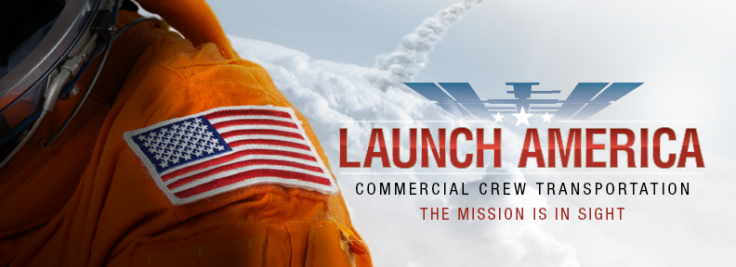NASA Major Announcement Live Stream: Boeing, Not SpaceX, Could Bring Manned Launches Back To US, Report

NASA was set to make a "major announcement" Tuesday on the space agency's Commercial Crew Program on the return of manned launches to the U.S. in 2017. The Wall Street Journal reported Boeing Co. (NYSE:BA) will edge out SpaceX, Sierra Nevada Corp. and Blue Origin for the contract.
"Whoever is chosen will have the goal to achieve certification of the system -- including a test flight to the International Space Station with a NASA astronaut -- in 2017, returning a critical capability to America and greatly expanding the scientific research potential of the orbiting laboratory," reads the announcement regarding manned launches.
NASA currently relies on the Russian Federal Space Agency for launches to the International Space Station at a cost of $70 million per launch. Following the first round of sanctions against Russia in April, there was plenty of tension regarding NASA's partnership with Roscosmos and the future of the ISS. Russian Deputy Prime Minister Dmitry Rogozin, who also heads the Military-Industrial Commission, even suggested NASA astronauts would need a trampoline to reach the space station.
To bring manned launches back to the U.S., NASA launched the Commercial Crew Program, partnering with several companies to develop new space taxis to ferry astronauts to the ISS. Elon Musk's SpaceX developed the Dragon V2, Boeing developed the CST-100 spacecraft, Sierra Nevada developed the Dream Chaser, and Jeff Bezos' Blue Origins' developed the New Shepard Vehicle as part of the Commercial Crew Program.
While SpaceX has been a critical darling because of its low price, reusability and current ISS resupply mission contract, Boeing's CST-100 seems like the safest option for NASA, the Journal reported. Boeing would receive the larger Commercial Crew Program contract, but SpaceX is likely to receive a second, smaller contract. Another factor in NASA's decision was the successful completion by Boeing of the program's development goals while SpaceX did not complete all requirements, the Journal said.
The NASA announcement live stream begins at 4 p.m. EDT and can be viewed below.
Broadcast live streaming video on Ustream© Copyright IBTimes 2025. All rights reserved.






















